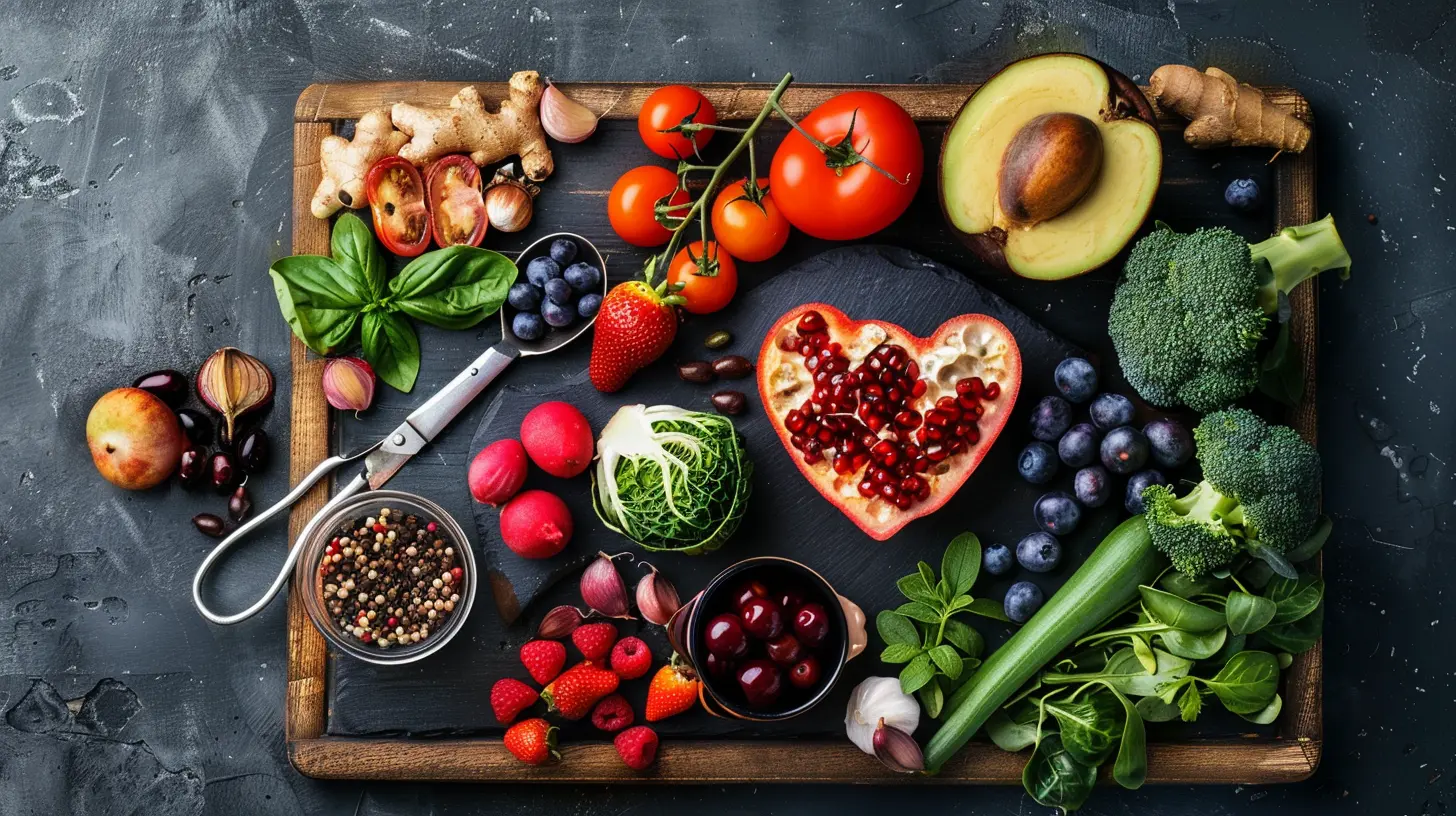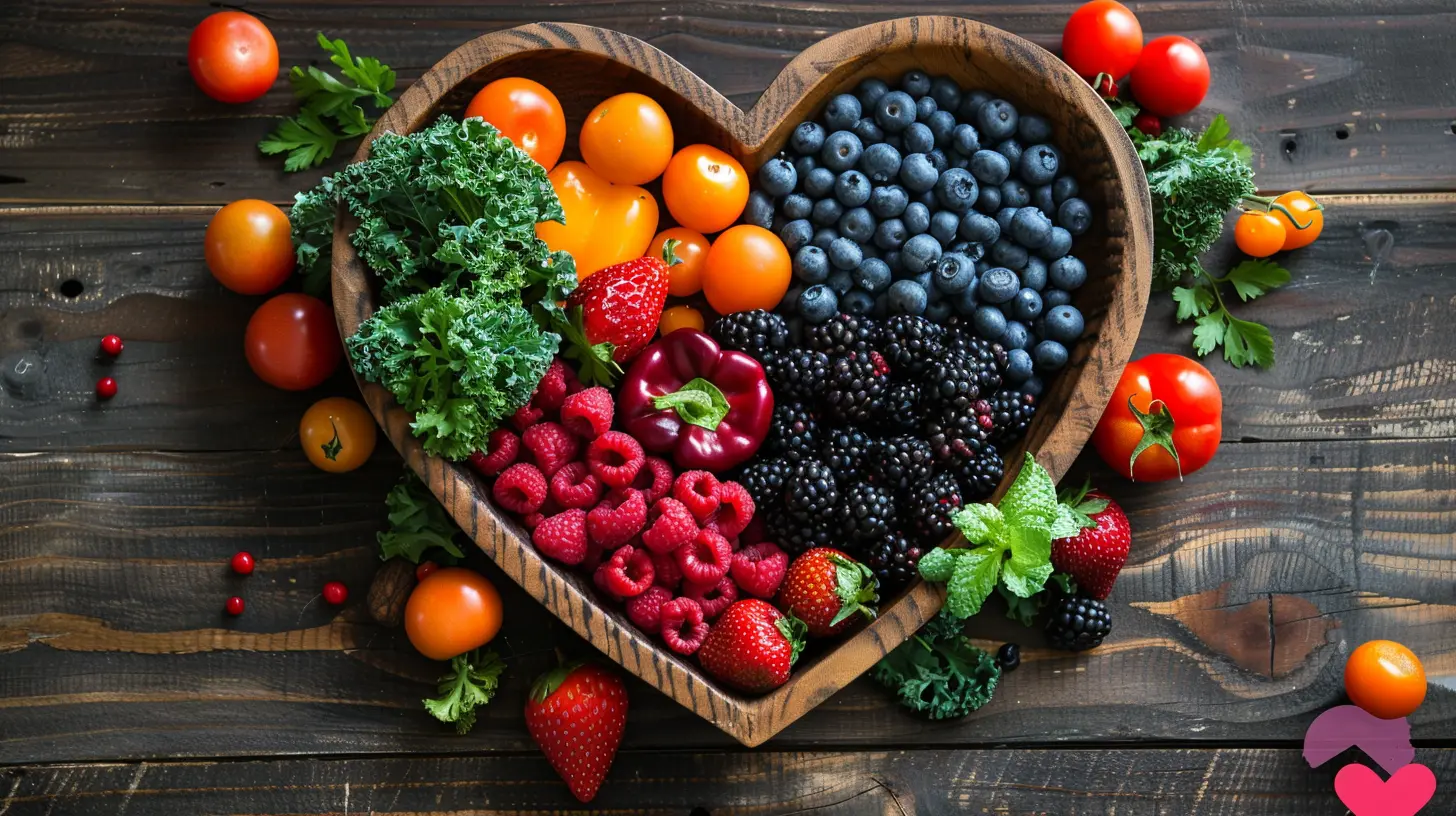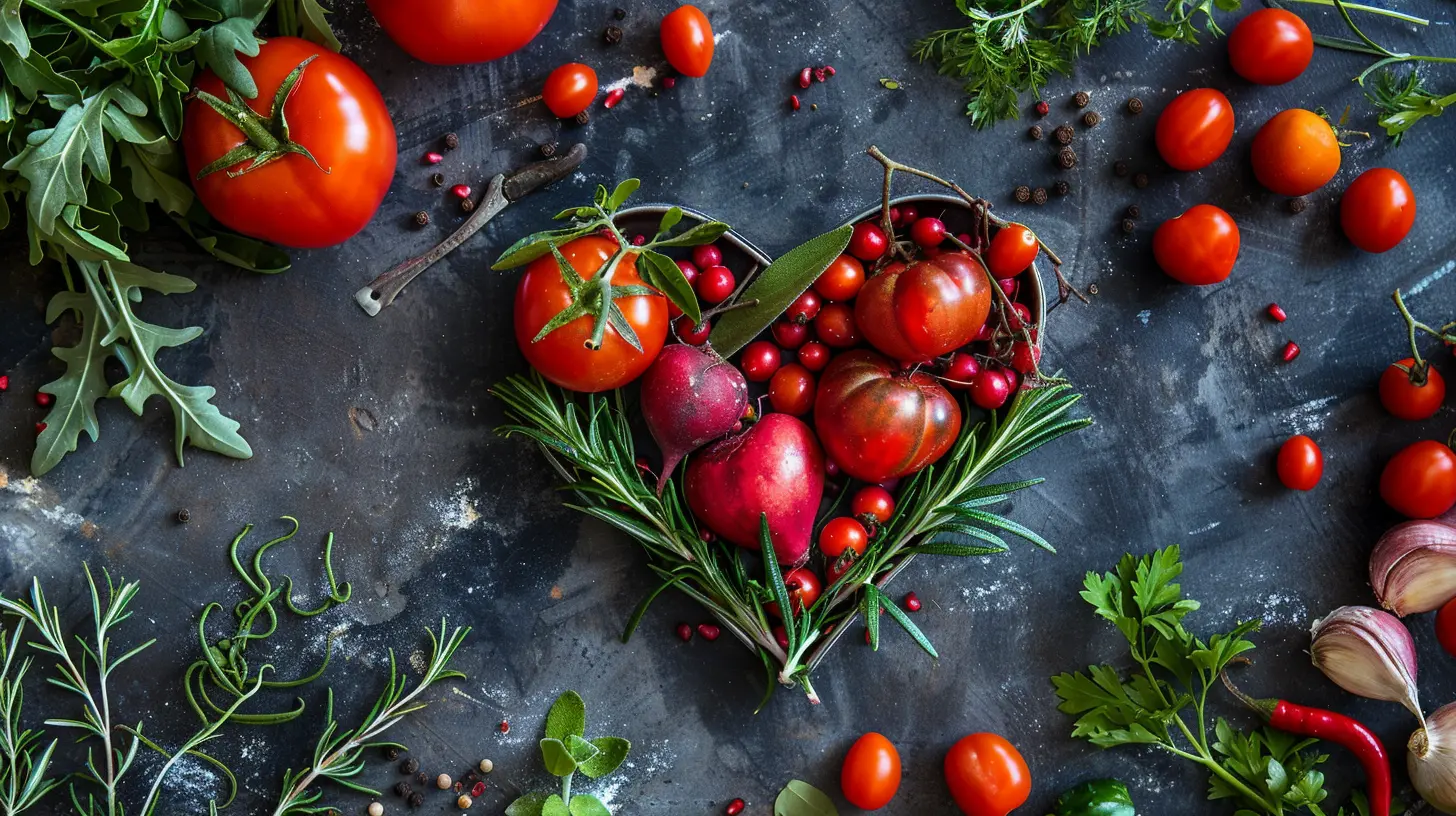13 April 2025
Heart disease is often called the "silent killer," creeping up on millions without warning. But what if the key to a healthier heart is hidden in your plate? A vegan diet, rich in plant-based powerhouses, has been linked to better cardiovascular health. But how exactly does ditching animal products help your heart? Let’s break it down! 
What is Veganism?
Veganism isn’t just about avoiding meat—it’s a lifestyle that eliminates all animal products, including dairy, eggs, and even honey. Instead, it focuses on a diet packed with fruits, vegetables, grains, nuts, and seeds.At first, it might sound like a drastic change, but once you understand the science behind it, going vegan for your heart starts to make a whole lot of sense. 
How Veganism Affects Heart Health
Heart disease primarily results from issues like high cholesterol, high blood pressure, inflammation, and clogged arteries. Here’s how a plant-based diet tackles these problems:1. Lowers Bad Cholesterol (LDL)
One of the biggest culprits behind heart disease is LDL cholesterol—also known as "bad cholesterol." This fatty substance can build up in your arteries, leading to blockages and increasing the risk of heart attacks.Plant-based diets are naturally low in saturated fats (found mostly in animal products) and high in fiber, which helps flush out excess cholesterol. Studies have shown that vegans tend to have lower levels of LDL cholesterol, reducing their risk of heart complications.
2. Improves Blood Pressure
High blood pressure (hypertension) is a major risk factor for cardiovascular disease. A diet rich in whole plant foods provides essential nutrients like potassium, magnesium, and antioxidants, which help regulate blood pressure levels.Animal products, on the other hand, are often high in sodium and saturated fat, both of which can cause blood pressure to spike. A vegan diet naturally cuts these out and supports a healthier circulatory system.
3. Reduces Inflammation
Chronic inflammation plays a major role in heart disease. When your body is constantly inflamed, it can damage blood vessels and lead to plaque buildup in the arteries.Plant-based diets are packed with anti-inflammatory foods like leafy greens, berries, nuts, and seeds. These foods contain antioxidants and phytonutrients that help reduce inflammation and protect your heart from long-term damage.
4. Boosts Arterial Function
Your arteries work like highways, transporting oxygen-rich blood throughout your body. But if they become stiff or clogged, you're at serious risk for a heart attack or stroke.A vegan diet, rich in nitric oxide-boosting foods like leafy greens and beets, helps arteries stay flexible and improves blood flow. This means your heart doesn’t have to work as hard to keep things moving!
5. Aids in Weight Management
Carrying excess weight puts unnecessary stress on your heart. Since plant-based diets are typically lower in calories but high in fiber, they naturally promote weight loss and a healthy BMI.Obesity is closely linked to heart disease, so maintaining a healthy weight through a balanced vegan diet can lower the risk of cardiovascular issues significantly. 
The Role of Fiber in Heart Health
A key component of plant-based diets is fiber, and this is where veganism really shines. Fiber does more than just keep your digestion on point—it plays a critical role in heart health too!How Fiber Helps Your Heart
- Lowers cholesterol by binding to it in the digestive system and carrying it out of the body.- Reduces blood sugar spikes, lowering the risk of diabetes (another heart disease risk factor).
- Keeps you full longer, helping with weight management.
The best sources? Think lentils, black beans, quinoa, oats, flaxseeds, and leafy greens! 
Debunking Myths About Veganism and Heart Health
There are plenty of myths floating around about plant-based diets. Let’s bust a few of the most common ones:1. “Vegans Don’t Get Enough Protein”
This is one of the biggest concerns people have about going plant-based. But the truth? There are plenty of protein-rich plant foods, including lentils, chickpeas, quinoa, tofu, tempeh, and nuts.Your heart doesn’t need excessive amounts of protein, but it does need a healthy balance—and plant-based sources provide just that!
2. “Vegan Diets Are Lacking in Essential Nutrients”
While it’s true that vegans need to be mindful of nutrients like B12, iron, and omega-3s, it’s entirely possible to meet these needs through fortified foods or supplements. Plus, plant-based diets offer a variety of heart-healthy vitamins and minerals that animal-based diets may lack.3. “All Vegan Diets Are Healthy”
Not necessarily! Just because something is vegan doesn’t mean it’s good for your heart. Processed vegan snacks, sugary drinks, and fried foods can still contribute to heart disease if consumed excessively. Sticking to whole, nutrient-dense foods is the key to reaping the heart-health benefits of veganism.Real-Life Impact: What Science Says
Scientific research overwhelmingly supports the connection between plant-based eating and a healthier heart:- A study published in the Journal of the American Heart Association found that a plant-based diet reduces the risk of cardiovascular disease by up to 32%.
- Harvard researchers discovered that replacing animal-based protein with plant-based protein significantly lowers the risk of heart disease.
- A meta-analysis of multiple studies concluded that people who follow a vegan diet typically have lower blood pressure, cholesterol levels, and overall heart disease risk compared to meat-eaters.
With statistics like these, it’s hard to ignore the benefits!
Making the Switch: Easy Steps for a Heart-Healthy Vegan Diet
Okay, so you’re convinced. But how do you start incorporating more plant-based foods into your diet? Here are some simple steps:1. Start Small
You don’t have to go 100% vegan overnight. Try adding a few plant-based meals each week and gradually increase from there.2. Prioritize Whole Foods
Go for fresh veggies, fruits, whole grains, legumes, nuts, and seeds—these are the real MVPs when it comes to heart health.3. Watch Your Labels
Not all vegan products are healthy. Some plant-based alternatives can be ultra-processed and packed with unhealthy fats and sodium. Read those ingredient lists!4. Get Your Nutrients
Ensure you’re getting enough B12, iron, calcium, and omega-3s through fortified foods or quality supplements.5. Stay Hydrated & Active
A great diet is just one piece of the puzzle. Regular exercise and proper hydration also play a huge role in cardiovascular health.Final Thoughts: Your Heart Will Thank You
Switching to a plant-based diet may seem like a big change at first, but when you weigh the benefits—lower cholesterol, better blood pressure, reduced inflammation, and a healthier heart—it’s absolutely worth it.A vegan lifestyle isn’t just about cutting out animal products; it’s about embracing a heart-friendly way of eating that could add years to your life. So why not give it a shot? Your heart will thank you for it.


